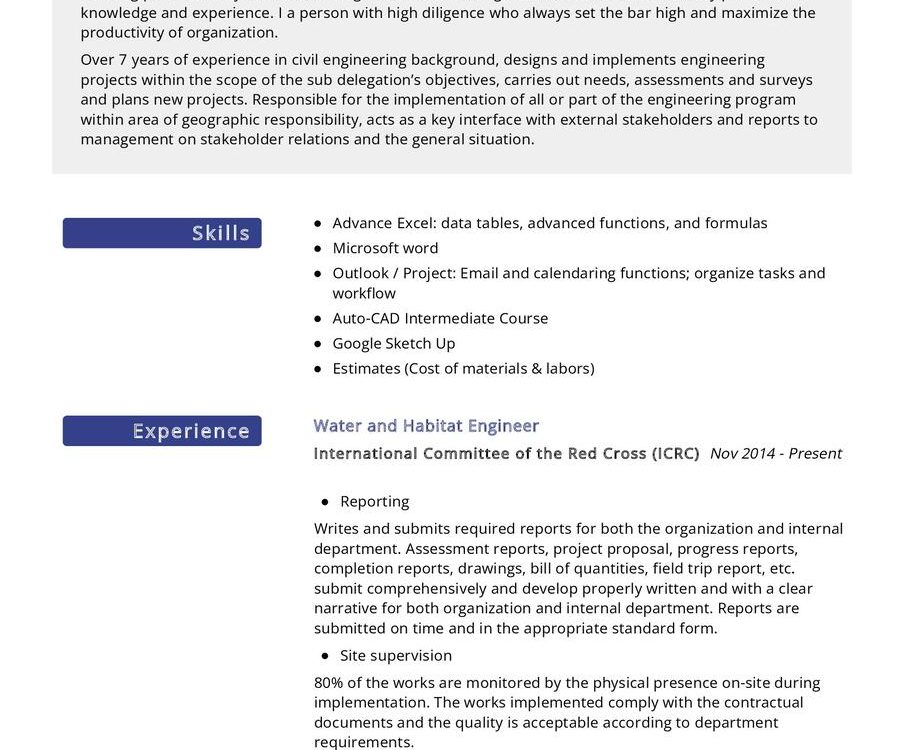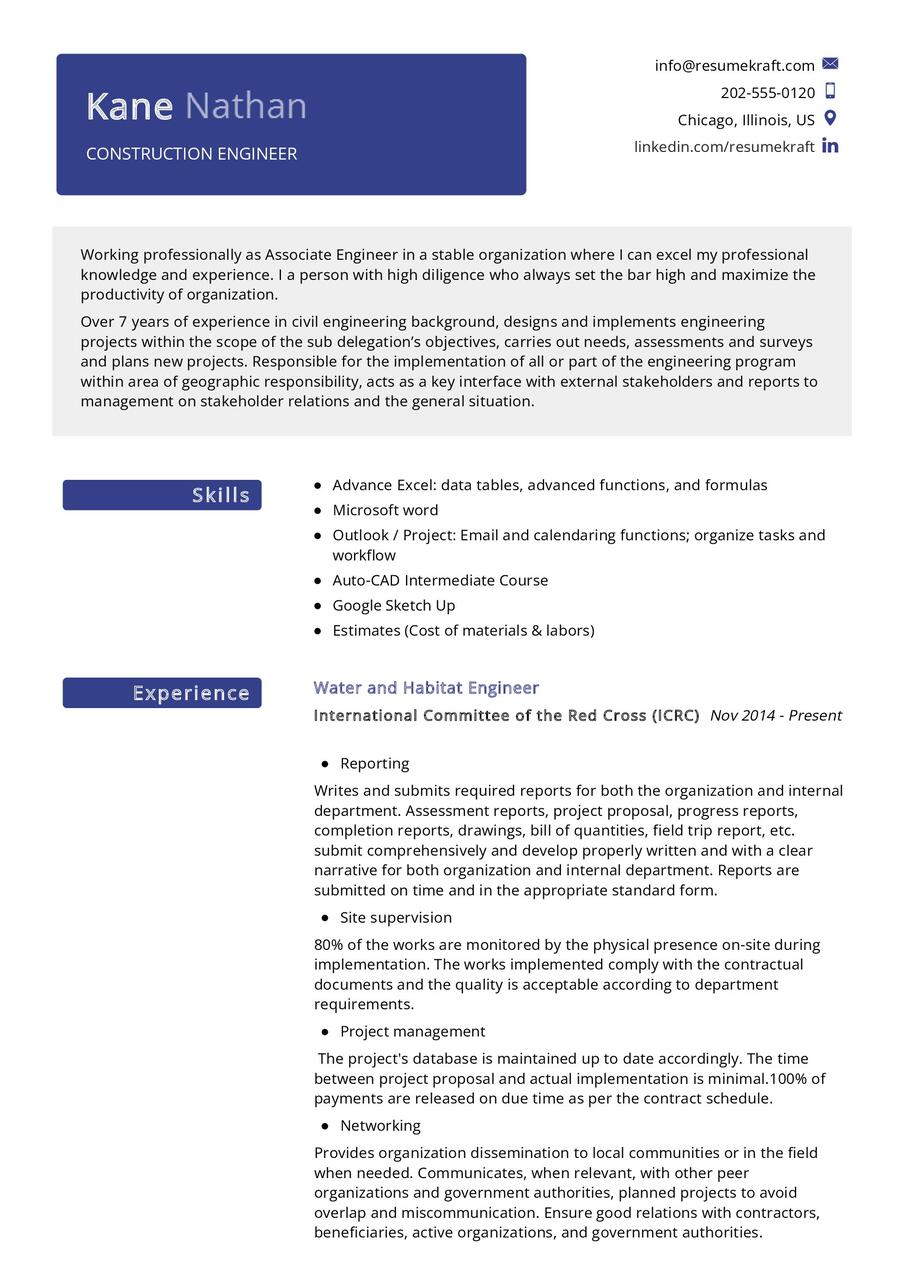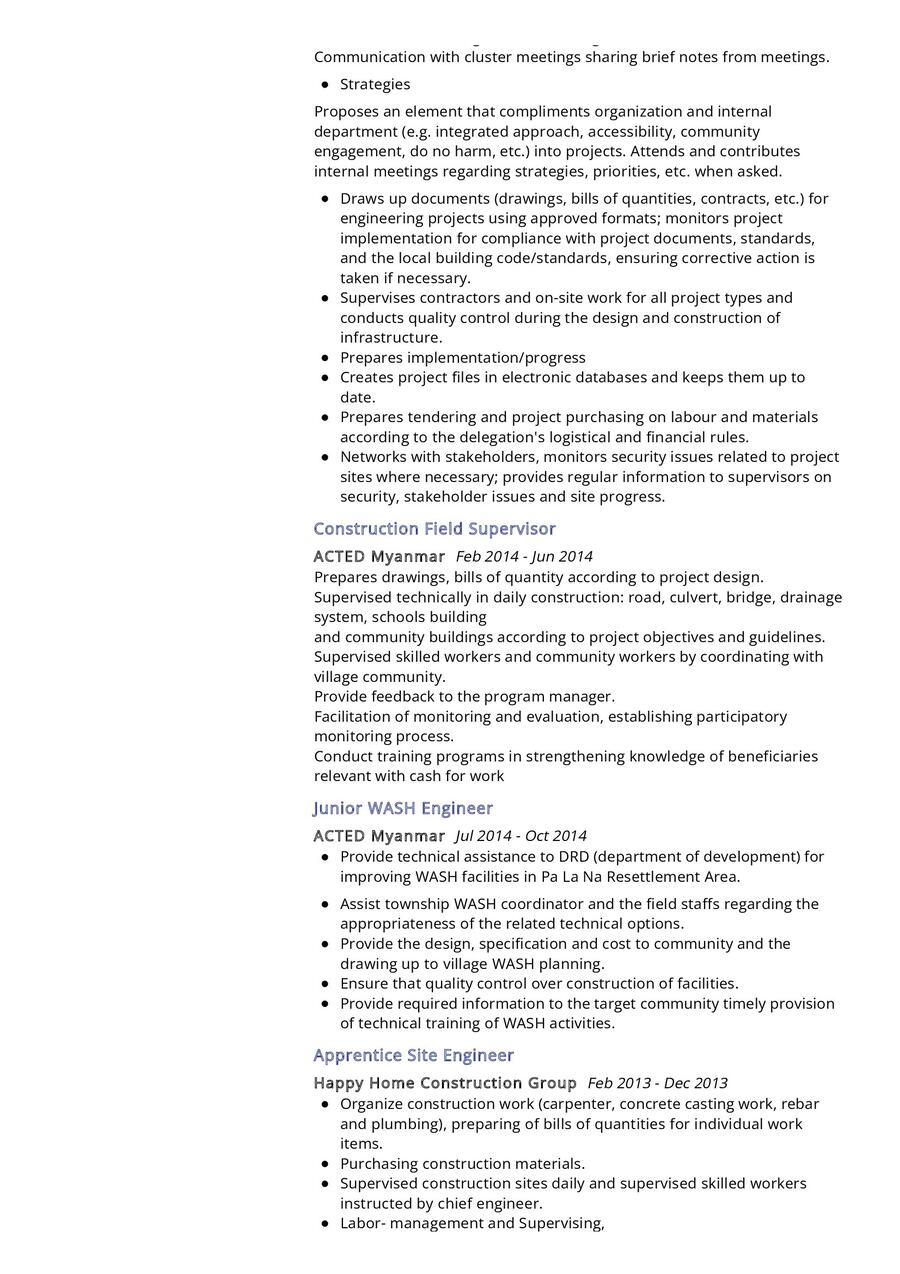Exploring the Role of a Construction Engineer
In the ever-evolving landscape of construction, the position of a Construction Engineer holds a crucial role. This role demands a unique blend of technical prowess and leadership skills, steering construction projects towards success. Let’s dive deep into the multifaceted responsibilities and requirements that define the role of a Construction Engineer.
Understanding the Job Requirements for a Construction Engineer
Becoming a Construction Engineer requires meeting specific qualifications and gaining hands-on experience. The journey involves continuous learning and growth in the construction domain. Here are the prerequisites to embrace the role:
- A Bachelor’s or Master’s degree in Civil Engineering or a related field, showcasing a strong foundation in the technical domain.
- Profound knowledge of construction techniques, materials, and project management.
- Hands-on experience in overseeing construction projects, displaying a trajectory of increasing responsibility.
- Leadership and managerial skills, honed through experiences and possibly through courses and certifications.
- Proficiency in project management tools and software, essential for efficient project execution.
- Effective communication skills to liaise with project stakeholders and team members.
- Ability to work under pressure, a trait developed over years of working in the dynamic construction environment.
Acquiring additional certifications in construction management can enhance your profile and competitiveness in the job market.
Key Responsibilities of a Construction Engineer
The role of a Construction Engineer encompasses a wide array of responsibilities, combining technical expertise, project management, and effective communication. Let’s unravel the core responsibilities that define this role:
- Overseeing construction projects from initiation to completion, ensuring they are completed within budget and on schedule.
- Collaborating with architects, contractors, and other stakeholders to ensure project specifications are met.
- Managing project budgets, resources, and timelines to ensure efficiency and cost-effectiveness.
- Ensuring compliance with building codes, regulations, and safety standards.
- Problem-solving and decision-making to address challenges that may arise during construction projects.
- Providing technical guidance to the construction team, resolving technical issues promptly.
- Conducting regular site inspections to monitor progress and quality of work.
Each responsibility comes with its own set of challenges and learning experiences, shaping you into a skilled Construction Engineer.
Crafting an Impressive Construction Engineer CV
Your Construction Engineer CV is a key tool in showcasing your skills and experiences. Here are some tips to help you create a compelling CV:
- Highlight your leadership roles, emphasizing instances where you successfully led construction projects.
- Detail specific projects you have managed, showcasing your contributions and achievements.
- Include metrics to quantify your achievements, providing a clear picture of your impact on construction projects.
- List relevant certifications, demonstrating your commitment to continuous learning in construction management.
- Personalize your CV for each application, tailoring it to the specific requirements of the construction job you’re applying for.
Your CV is not just a document; it is a reflection of your journey, skills, and aspirations in the construction industry.
Construction Engineer CV Summary Examples
Your CV summary is the opening act of your career story, setting the stage for what follows. Craft a powerful snapshot of your journey, encapsulating your experiences, skills, and the value you bring to the table. Here are some examples to inspire you:
- “Construction Engineer with over a decade of experience, adept at leading diverse teams in completing complex projects on time and within budget.”
- “Dedicated Construction Engineer known for innovative problem-solving, with a proven track record of ensuring the successful completion of high-profile construction projects.”
- “Experienced Construction Engineer specializing in sustainable construction practices, ensuring projects meet environmental standards and regulations.”
Each summary is a window to your career, offering a glimpse of your journey, your strengths, and your vision as a Construction Engineer.
Building the Experience Section of Your Construction Engineer CV
Your experience section is the heart of your CV, pulsating with the rich experiences you’ve gathered over the years. It is a space where you narrate your career story, highlighting milestones and learnings. Here are some examples to guide you:
- “Led a team of construction professionals in a high-paced environment, achieving a 15% improvement in project efficiency.”
- “Managed the construction of a sustainable building, implementing eco-friendly materials and practices, resulting in LEED certification.”
- “Resolved complex technical issues on-site, ensuring the seamless progress of construction projects and maintaining high-quality standards.”
Each experience is a chapter in your career book, narrating tales of challenges met, solutions found, and successes achieved.
Educational Background for Your Construction Engineer CV
Your educational journey is the foundation upon which your career stands. It is a testimony to your knowledge, expertise, and commitment to learning. Here’s how you can list your educational milestones:
- Master of Science in Civil Engineering, XYZ University, a journey of deep learning and specialization, 2015.
- Bachelor of Science in Civil Engineering, ABC University, the foundation stone of your construction career, 2012.
- Professional Engineer (PE) License, a recognition of your expertise and commitment to ethical standards in construction engineering, 2016.
Each educational qualification is a stepping stone, leading you to the pinnacle of success in your construction career.
Construction Engineer Skills for Your CV
Your skill set is your toolbox, equipped with a diverse range of tools that you have honed over the years. It is a showcase of your abilities, both innate and acquired. Let’s list down the essential skills that a Construction Engineer should possess:
Soft Skills:
- Leadership and team management, the ability to guide your team towards successful project completion.
- Communication and interpersonal skills, the art of conveying your thoughts effectively and building strong relationships with stakeholders.
- Problem-solving abilities, the knack of finding solutions in challenging construction situations.
- Attention to detail, the meticulous approach to ensuring construction projects meet quality standards.
- Adaptability and resilience, the strength to adapt to changing construction scenarios.
Hard Skills:
- Proficiency in project management tools, a crucial skill for efficient project execution.
- Knowledge of construction materials and techniques, essential for making informed decisions on-site.
- Understanding of building codes and safety standards, ensuring compliance in construction projects.
- Budget and resource management, the acumen to manage construction resources efficiently.
- AutoCAD proficiency, a valuable skill for creating and interpreting construction drawings.
Each skill is a tool, aiding you in successfully leading construction projects and showcasing your expertise in your CV.
Common Mistakes to Avoid When Writing a Construction Engineer CV
As you craft your CV, it is essential to steer clear of common pitfalls that can hinder your journey to landing your dream job. Here we list down the mistakes often seen in CVs and how to avoid them:
- Using a generic template, a strategy that fails to showcase your unique fit for the construction engineer role.
- Focusing solely on job duties without highlighting your achievements, creating a CV that lacks depth.
- Ignoring the importance of a cover letter, a missed opportunity to express your passion for construction engineering.
- Overloading your CV with technical jargon, a strategy that can obscure your true value to potential employers.
- Failing to proofread, a mistake that can leave a dent in your professional image.
Each mistake is a pitfall, avoid them to craft a CV that is both authentic and compelling.
Key Takeaways for Your Construction Engineer CV
As we conclude this comprehensive guide, let’s recap the key points to keep in mind while crafting your Construction Engineer CV:
- Emphasize your leadership journey, showcasing the milestones achieved and the projects led to success.
- Highlight your technical proficiency, showcasing your expertise in construction materials, techniques, and project management.
- Detail the strategic initiatives you have spearheaded, painting a picture of your visionary approach to construction projects.
- Include a section on continuous learning, showcasing the certifications and courses you’ve undertaken to stay current in the field.
Finally, feel free to utilize resources like AI CV Builder, CV Design, CV Samples, CV Examples, CV Skills, CV Help, CV Synonyms, and Job Responsibilities to create a standout application and prepare for the Construction Engineer job interview.



